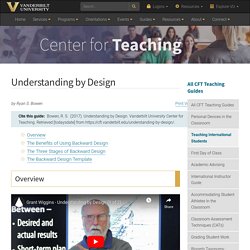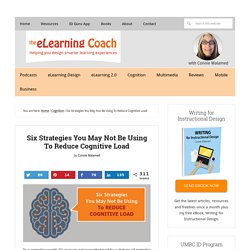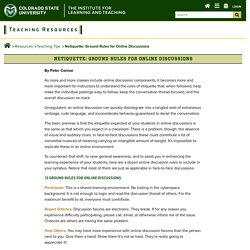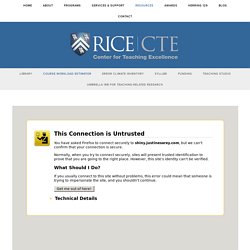

Understanding by Design. Overview Understanding by Design is a book written by Grant Wiggins and Jay McTighe that offers a framework for designing courses and content units called “Backward Design.”

Instructors typically approach course design in a “forward design” manner, meaning they consider the learning activities (how to teach the content), develop assessments around their learning activities, then attempt to draw connections to the learning goals of the course. In contrast, the backward design approach has instructors consider the learning goals of the course first. These learning goals embody the knowledge and skills instructors want their students to have learned when they leave the course. Once the learning goals have been established, the second stage involves consideration of assessment. 01 Anderson 2008 Theory and Practice of Online Learning. Johns Hopkins University Engineering for Professionals. Establishing a positive online presence in your course can result in your students' having: a poor learning experience a somewhat valuable experience a meaningful and rich learning experience all of the above Answer: 3. a meaningful and rich learning experience Why?

Many students are enrolled in the courses at EP because of the expertise and experiences they can gain from the subject and the subject matter expert: you! This invaluable combination of theoretical foundations and practical real world experience covers all areas of student satisfaction: why, what, and how. Please view the following recording on effective strategies for establishing an online presence. The slides for this presentation can be downloaded in PDF format. To download please click the following link: Establish an Online Presence As you can see the strategies explained in the video above are easy to create and easy to implement and your instructional designer is always there to provide assistance.
Oaiplus.pdx. Oaiplus.pdx. Technology That Improves Instructor Presence in Online Courses. Cognitive Load Theory and its application in the classroom. Six Strategies You May Not Be Using To Reduce Cognitive Load. In a complex world, it’s easy to get overwhelmed by a deluge of complex information.

This shouldn’t be surprising, as working memory (our mental work space), has a limited capacity for processing information. If the demands placed on working memory, known as cognitive load, are too high, learners may give up in frustration or fail to comprehend. According to cognitive load theory, some inherent cognitive load must occur during the process of learning.
In fact, learners can benefit from friction, difficulties and challenge. What is not a benefit is excessive or extraneous cognitive load, which is under the control of the learning experience designer or facilitator. 1. With this strategy, think of the signal as the message you want to communicate and the noise as the extraneous information that detracts from learning. What elements become noise during learning? Articulate E-Learning Heroes Community. Excellent Online Teaching - Sharing Practices, Building Community. Home. Hybrid Pedagogy. Netiquette: Ground Rules for Online Discussions – TILT – Colorado State University. By Peter Connor As more and more classes include online discussion components, it becomes more and more important for instructors to understand the rules of etiquette that, when followed, help make the individual postings easy to follow, keep the conversation thread focused, and the overall discussion on-track.

Unregulated, an online discussion can quickly disintegrate into a tangled web of extraneous verbiage, rude language, and inconsiderate behavior guaranteed to derail the conversation. The basic premise is that the etiquette expected of your students in online discussions is the same as that which you expect in a classroom. There is a problem, though: the absence of visual and auditory clues.
In face-to-face discussions these clues contribute a lot of nonverbal nuances of meaning carrying an intangible amount of weight. Participate: This is a shared learning environment. Report Glitches: Discussion forums are electronic. Use Proper Writing Style: This is a must. No YELLING! Course Workload Estimator — Rice University Center for Teaching Excellence. Aaronson, Doris, and Steven Ferres.

“Lexical Categories and Reading Tasks.” Journal of Experimental Psychology: Human Perception and Performance 9, no. 5 (1983): 675–99. doi:10.1037/0096-1523.9.5.675. Acheson, Daniel J., Justine B. Wells, and Maryellen C. MacDonald. Carrillo, Lawrence W., and William D. Carver, Ronald P. ———. ———. Dehaene, Stanislas. Introduction - eLearning Toolkit - Western University. Interactive Techniques. Instructional Design.